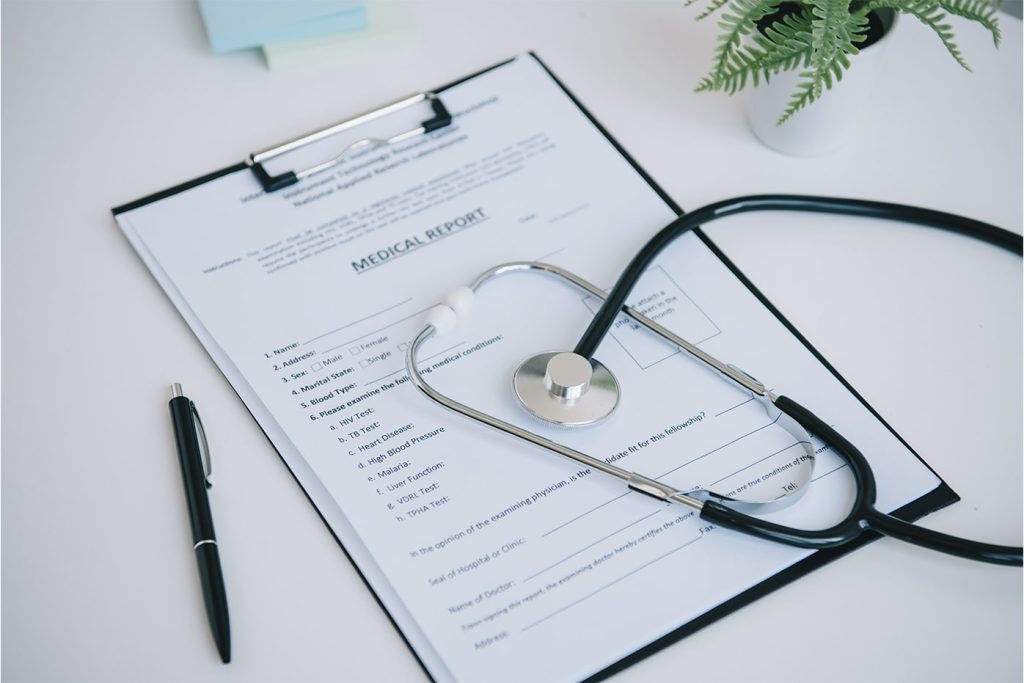Claimants: For Individuals
CitiMedical: Essential Guidance for Personal Injury Claimants in the UK
If you are pursuing a personal injury claim, whether for an accident at work, a road traffic accident (RTA), or any other type of injury, obtaining robust medical evidence is crucial. Except for the most minor injuries, this process typically involves an examination by a medical expert who acts as an impartial assessor and prepares a medical report.
Related Content:
Arranging an Appointment with a Medical Expert
Your solicitor will usually arrange an examination when they are confident your claim will succeed or when the opposing party has admitted fault. Often, this involves instructing a medical expert through a medical agency like CitiMedical.
The type of medical expert required depends on the nature of your injuries. For instance, in RTA claims where whiplash is common, a GP may conduct the examination. For more severe injuries, such as fractures, a senior consultant like an orthopaedic surgeon will be involved and may request access to your medical records, including GP records, hospital notes, and imaging results.
Step 1. The Medical Examination.
During the examination, the expert will ask about your injuries and may conduct a physical inspection if needed. It’s important to communicate all your symptoms and injuries, as the expert won’t know unless you tell them. Remember, the expert’s role is to provide an independent assessment, not to offer treatment.
If you have specific wishes about the type of clinician you need such as preferring a female consultant you just need to ask.


Step 2. The Medical Report
After the examination, the expert will compile a medical report, which will be sent to your solicitor. Your solicitor will scrutinize the report to ensure accuracy and relevance. This involves verifying the description of the accident, assessing your injuries, understanding the impact on your lifestyle, and considering any recommendations for further medical evaluation or rehabilitation.
Step 3. Ensuring Accuracy and Addressing Errors
It’s crucial to review the medical report thoroughly. Mistakes can happen, such as incorrect details about the injury location. If any errors are found, your solicitor will return the report to the expert for correction. At CitiMedical, we emphasise personalised service, ensuring that your case is handled by a specialist familiar with your details, thereby reducing the likelihood of errors.


Step 4. Challenging the Expert’s Conclusions
If your solicitor believes the expert’s diagnosis or prognosis is inaccurate, they may challenge it by writing to us. The severity of your injury, as outlined in the report, significantly influences the value of your claim, including both general damages (pain, suffering, and loss of amenity) and special damages (financial losses).
Step 5. Finalising the Medical Report
You must approve the contents of the medical report before it is disclosed to the other side. An unhelpful report can weaken your claim, and once disclosed, it’s difficult to replace it with a more favourable one. In complex cases, multiple experts might provide reports on different injuries. The opposing party may also instruct their own experts, potentially resulting in less favourable assessments for you.

The Importance of Thorough Medical Evidence Analysis
Ensuring that your solicitor rigorously interrogates the medical evidence is essential. Your active participation in analysing and commenting on the report is equally important. At CitiMedical, we provide the expertise and meticulous attention needed to support your personal injury claim effectively, ensuring that your medical evidence is robust and accurately reflects your injuries and their impact.
By following these guidelines, CitiMedical helps you navigate the complexities of personal injury claims, ensuring that you have the best possible support and medical evidence to secure the compensation you deserve.
FAQs for Individual Claimants
Your appointment with a medical expert is essential. The medical expert will create a detailed report outlining the injuries sustained from your accident or negligent medical treatment and provide an opinion on your recovery timeline. This report is crucial for your solicitor to effectively pursue your claim.
At the examination, you will need to present photographic identification, such as a driver’s license or passport. The medical expert will ask you detailed questions about the accident, your symptoms, your recovery, any medical treatments, and how your injuries have impacted your daily life. The expert may also conduct a physical examination, which might require the removal of some clothing for a thorough assessment. The expert will either take notes or dictate their report during the examination.
You will be contacted by our dedicated team and on occasions by the medical expert, either by telephone or letter, to confirm the time, date, and location of your appointment.
The medical report will be sent to your solicitor about three weeks after your examination. Your solicitor will review the report with you and provide advice on the next steps regarding compensation.
Please arrive 15 minutes before your scheduled appointment for parking and finding the location. If you are unsure of the location, contact us in advance for directions. Arriving late may result in insufficient time for the expert to see you and there can be fees.
The length of the examination depends on the type of expert and the nature of your injuries. Generally, a GP examination takes about 15 minutes, while a psychological examination may last around 45 minutes. Other appointments vary depending on the complexity.
The expert will usually need access to all your medical records to be fully informed of any pre-existing conditions. This comprehensive view helps them provide an accurate prognosis and informed opinion.
We select experts from our panel who specialise in producing medical reports for injury claims. These experts are trained for this specific purpose. We choose the closest suitably qualified expert to conduct your examination, so it’s important that you attend as scheduled.
The expert’s role during the examination is not to offer medical advice. However, any treatment recommendations will be included in their report.
If you cannot attend your appointment, inform us or the expert as soon as possible. Note that non-attendance or cancellations with less than 10 days’ notice may result in a fee for which you could be personally liable.
Missing your appointment will delay your case and may result in a fee. Additionally, the expert might be unwilling to reschedule another appointment.
Yes, most experts allow you to bring a friend or relative. If you prefer a chaperone and are attending alone, please inform the expert in advance. If you have a joint appointment with a family member or friend, ensure you arrive in time for the earliest scheduled appointment.
Yes, you need to confirm your attendance with us or the expert as soon as possible to avoid cancellation.
Medical records can only be released with your written consent, as required by Data Protection Legislation. Signing a mandate allows us to access the necessary information.
No, the medical expert must be impartial and has been agreed upon by the Third Party Insurers. Therefore, your GP or treating doctors cannot be selected. If you have previously seen the appointed expert for treatment, please contact our office before making any arrangements.
Discuss potential claims for travel expenses or lost wages with your solicitor before the examination.
No, the expert needs to assess your recovery progress accurately. Seeing you too soon after the accident may not provide a complete picture of your injuries. For serious injuries, the appointment may be deferred to better understand the long-term impact.
If your medical records are required before the appointment, it may take 6-8 weeks to obtain them from your GP, hospital, or physiotherapist. Once received, they will be sent to the expert, who will then schedule an appointment. Waiting times can vary, but generally, it takes 5-8 weeks to see a GP and 8-12 weeks for other specialists.
Come prepared with relevant dates and details about your accident and injuries. The expert will need extensive information to prepare an accurate report for the court.
The medical examination is critical as it results in a detailed report outlining your injuries and recovery. This report is essential for your solicitor to build a strong case and pursue your claim effectively.




